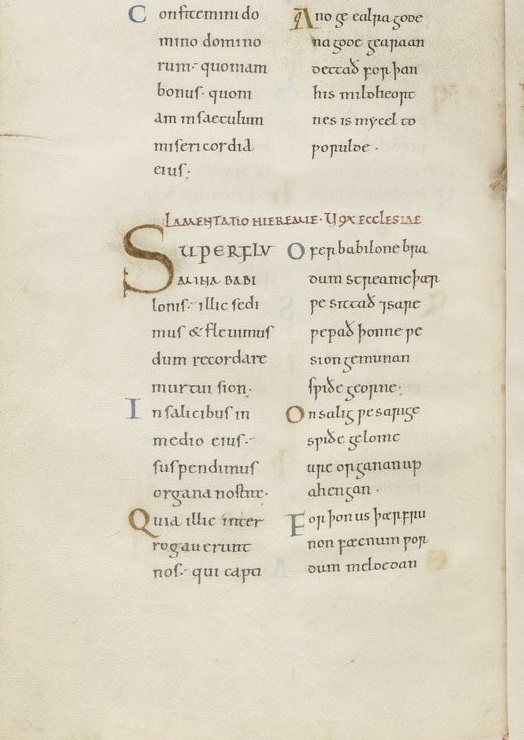MEDIEVAL PASTS / INDIGENOUS FUTURES
March 10, 2023
10:30am-3:30pm EST
To register to attend in person, click here.
For those who would like to attend virtually, please complete ZOOM LINK registration here.
Faculty House, Columbia University
With Suzanne Conklin Akbari (Princeton University), Tarren Andrews (Yale University, Confederated Salish and Kootenai Tribes), Gage Diabo (Concordia University, Kanien’kehá:ka), Emma Hitchcock (Columbia University), Audra Simpson (Columbia University, Kahnawà:ke Mohawk) and Stephen Yeager (Concordia University)
Sponsored by CEMS, Office of the Vice Provost for Faculty Advancement, Medieval & Renaissance Studies, Department of English and Comparative Literature, University Seminar on Medieval Studies, Center for the Study of Race and Ethnicity
Analogues are a key category of evidence in medieval literary studies. When parallels between phrases, imagery, or narrative elements in stories are specific enough that they do not seem to be merely conventional, they empower us to make claims about the shared histories of texts and traditions, and so also about connections in and between the cultural milieux that produced them. Analogic claims narrativize not only the historical relationships between texts in the past but also political relationships between nations in the present. The people who share stories are generally considered to be kin, and the study of analogues aims precisely to determine which people share stories. The studies of analogues so common to medieval studies are always in this sense studies of kinship, between not only medieval peoples but also their modern descendants.
The first half of the day the primary circle members—Tarren Andrews (Confederated Salish and Kootenai Tribes), Gage Diabo (Kanien’kehá:ka), Emma Hitchcock, and Stephen Yeager—will share thoughts and engage in a conversation about the above prompt. After a lunch break, the workshop will reconvene, and the circle will expand to include all participants in the ongoing conversation. We recommend participants review the following bibliography and welcome further additions to our discussion.
We are asking for participants who attend this Talking Circle and workshop to come prepared to think alongside one another about this complex question, to generously and sincerely discuss the stakes of the analogic methods that so regularly, and perhaps even subconsciously, shape our research practices. The following materials in pdf format will be sent to those who register:
- Bradway, Tyler and Elizabeth Freeman. “Introduction: Kincoherence/Kin-aesthetics/Kinematics.” Queer Kinship: Race, Sex, Belonging, Form. (2022)
- Rifkin, Mark. “Introduction.” When Did Indians Become Straight?: Kinship, The History of Sexuality, and Native Sovereignty. (2011)
- Simpson, Audra. “Indigenous Interruptions.” Mohawk Interruptus: Political Live Across the Borders of Settler States. (2014)
- excerpt from Williams, Kayanesenh Paul. Kayanereko:wa: The Great Law of Peace. (2018)
